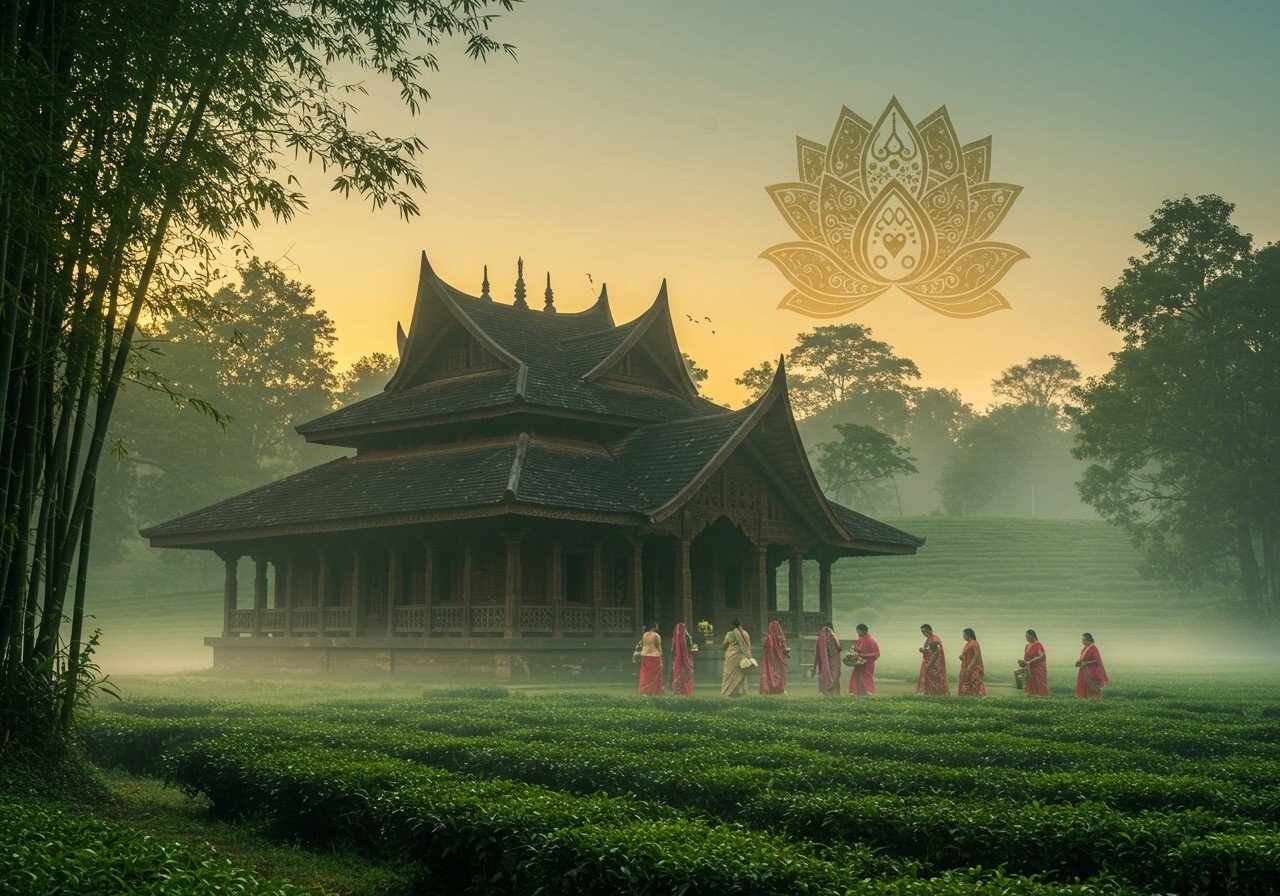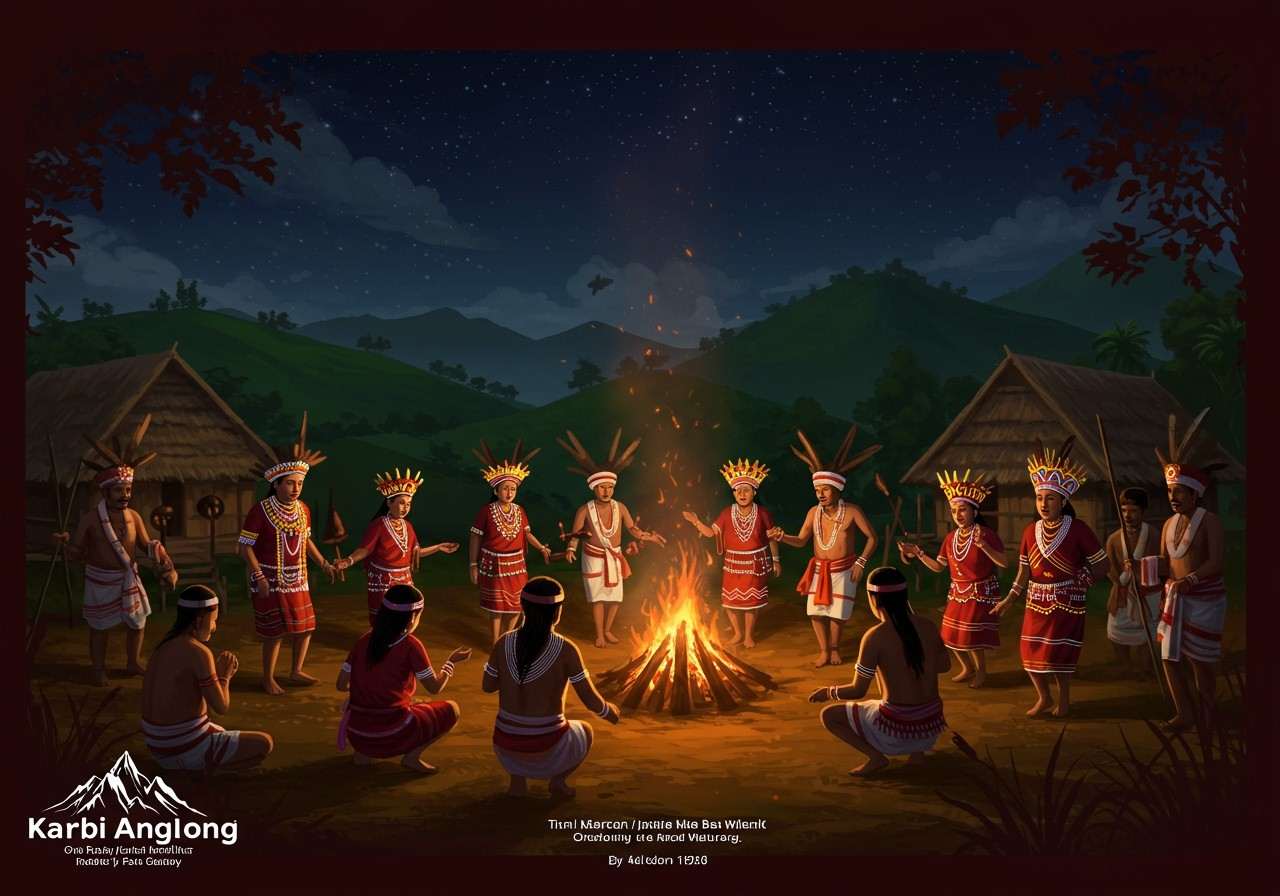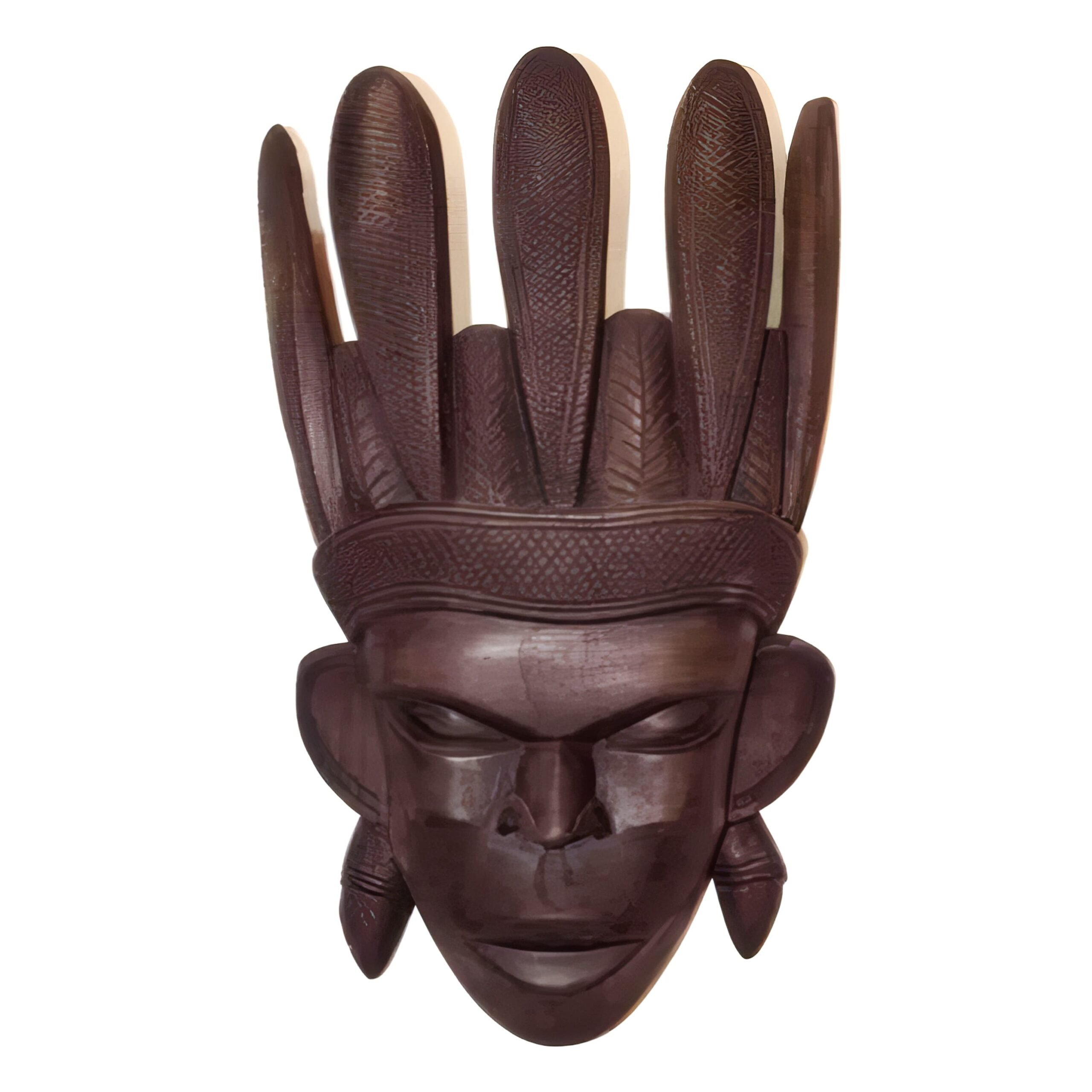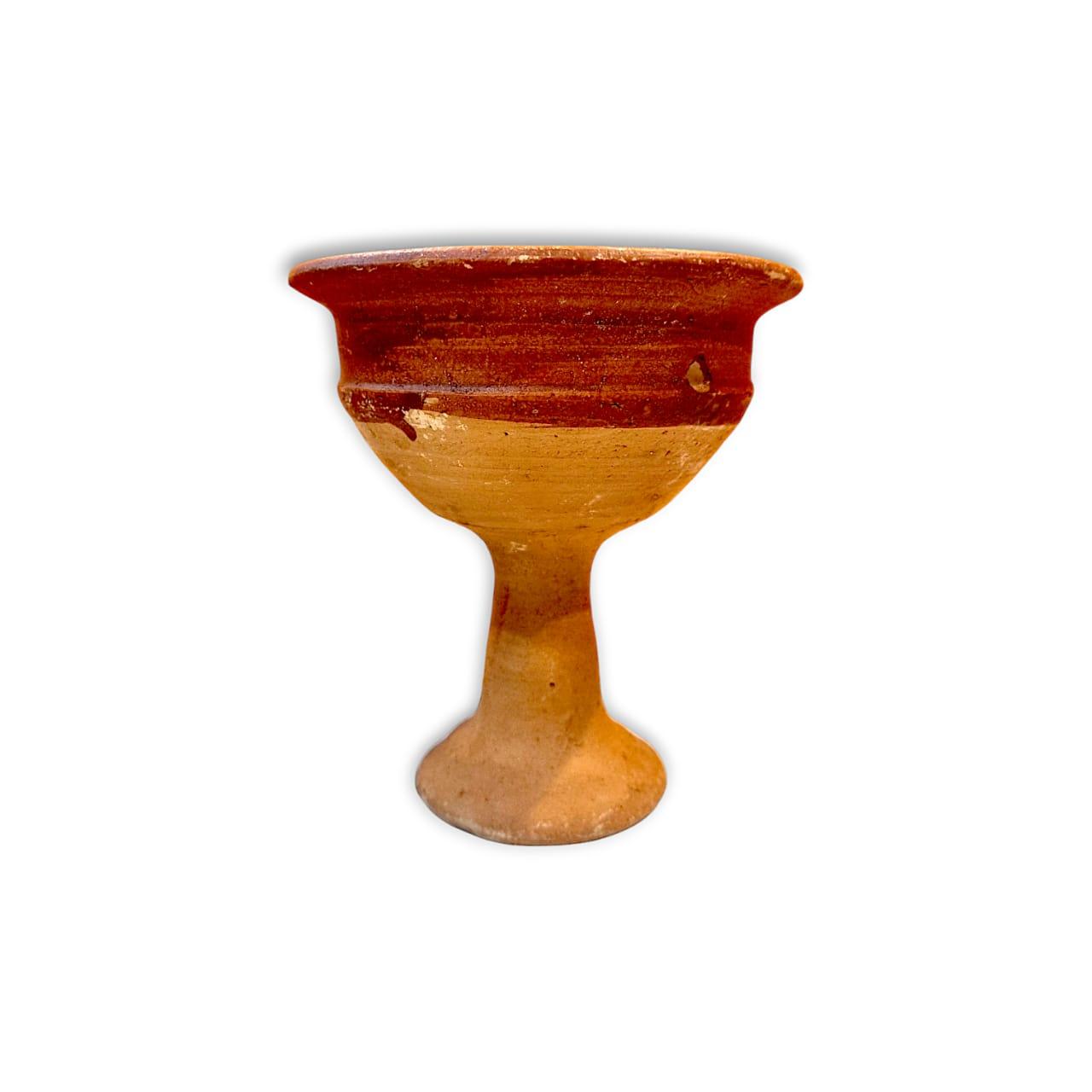

Imagine a place where lush green hills echo with ancient chants, and vibrant traditions are woven into the fabric of everyday life. Welcome to Karbi Anglong in Assam, a land that is not just a district but a living, breathing museum of culture. This region is the heartland of the Karbi people, also known as Arleng, one of Northeast India’s most ancient communities. Their simplicity, warmth, and profound connection with nature make this place truly special.
The cultural heritage here isn’t just found in books; it’s passed down from one generation to the next through stories told by elders, folk songs that narrate history, and dances that celebrate life. It’s a testament to the resilience and creativity of its people, who have beautifully preserved their unique identity amidst the winds of change.
The People of the Hills: Understanding Karbi Culture
The Karbi tribe forms the soul of Karbi Anglong. Their way of life is a beautiful blend of age-old customs and a deep respect for the natural world. Their social structure is fascinating; for instance, they don’t have a system of bride price. After marriage, a wife proudly retains her father’s surname, while the children take on their father’s title, a unique practice that honours both lineages.
Community governance is handled by traditional village councils called “ME,” which are made up of wise elderly men led by a village headman. This ensures that decisions are made with collective wisdom. The Karbi language is the primary medium of communication, but most people are also fluent in Assamese, the common tongue of the region, showcasing their ability to embrace both their own identity and that of the larger community.
Artistry Woven from Nature’s Bounty

The artistic spirit of the Karbi people is visible in their incredible handicrafts. Skilled artisans here can turn a simple piece of wood into a masterpiece and spin cotton into beautiful, hand-woven quilts. Their traditional clothes are a riot of colour, featuring intricate embroidery that tells a story. Bamboo and cane, found in abundance in the hills, are transformed into everyday items of great utility and beauty.
These crafts are more than just objects; they are a reflection of the Karbi people’s cultural identity and their harmonious relationship with their environment.
A Calendar of Joy: The Festivals of Karbi Anglong
To truly understand the spirit of Karbi Anglong, one must experience its festivals. These celebrations are a vibrant showcase of their beliefs, gratitude, and community bonding.
- Karbi Youth Festival: This isn’t just any festival; it is celebrated as the oldest ethnic festival in all of India! Held every year from February 15th to 19th near Diphu, it’s a grand spectacle of folk culture, art, and performances, bringing together the Karbi tribe and other indigenous communities in a joyous celebration of their shared heritage.
- Rongker: This is a powerful community festival held at the beginning of the year or after the harvest. The entire village comes together to pray to the deities for prosperity, a bountiful harvest, and protection from all evils. It is a deeply spiritual event that strengthens the bonds of the community and lasts for three days.
- Chomangkan: A solemn and deeply respectful ceremony, Chomangkan is a death ritual performed to ensure eternal peace for the departed soul. It reflects the community’s profound beliefs about life, death, and the afterlife, and is a way for the entire village to support a grieving family.
- Sokk-erroi and Hacha Kekan: These festivals capture the pure joy of a successful harvest. Sokk-erroi is celebrated when the paddy fields are ripe, with people singing and dancing as they bring the harvest home. Hacha Kekan is a lively post-harvest dance, a purely secular celebration of hard work and its sweet rewards.
Connect with Tradition, No Matter Where You Are

Feeling inspired by the deep-rooted faith and vibrant rituals of Karbi Anglong? While these traditions are unique, the essence of devotion and celebration is universal across India. At poojn.in, we are dedicated to helping you honour your own traditions with authenticity and care.
If you wish to create a sacred atmosphere in your home, reminiscent of the pure rituals of our land, consider our Handmade Dhuno Pot for Dhoop. Burning dhuno (incense) is a timeless practice to purify the space and invoke blessings, a simple yet profound ritual that connects us to our spiritual roots.
Exploring More of Assam’s Spiritual Landscape
The spiritual aura of Assam extends far beyond Karbi Anglong. If you’re drawn to the sacred sites of this incredible state, you might also be interested in learning about another divine destination. Discover the stories and traditions of Dhekiakhowa Bornamghar, Assam’s Spiritual Heart, a place of immense faith and history.
Your Questions on Karbi Anglong’s Culture Answered
Many people are curious about this unique region. A common question is how visitors can respectfully experience this culture. The best way is to visit during festivals like the Karbi Youth Festival, where their traditions are on full display. Interacting with local artisans and visiting villages with a local guide can also provide deep insights into their way of life.
Another point of interest is the significance of their heritage. The traditions of Karbi Anglong are vital because they represent a worldview where humanity and nature coexist in harmony. Preserving this heritage is not just about protecting customs; it’s about safeguarding a wealth of indigenous knowledge and a sustainable way of living.
A Timeless Legacy
Karbi Anglong’s cultural heritage is a beautiful reminder of the diversity that makes India so incredible. It’s a story of a people who have held onto their roots with pride while warmly welcoming visitors to share in their joy. Their festivals, art, and social customs are not just for them to practice but for all of us to learn from and admire. This living heritage, cradled in the hills of Assam, is a treasure that continues to inspire and enrich the soul of our nation.


